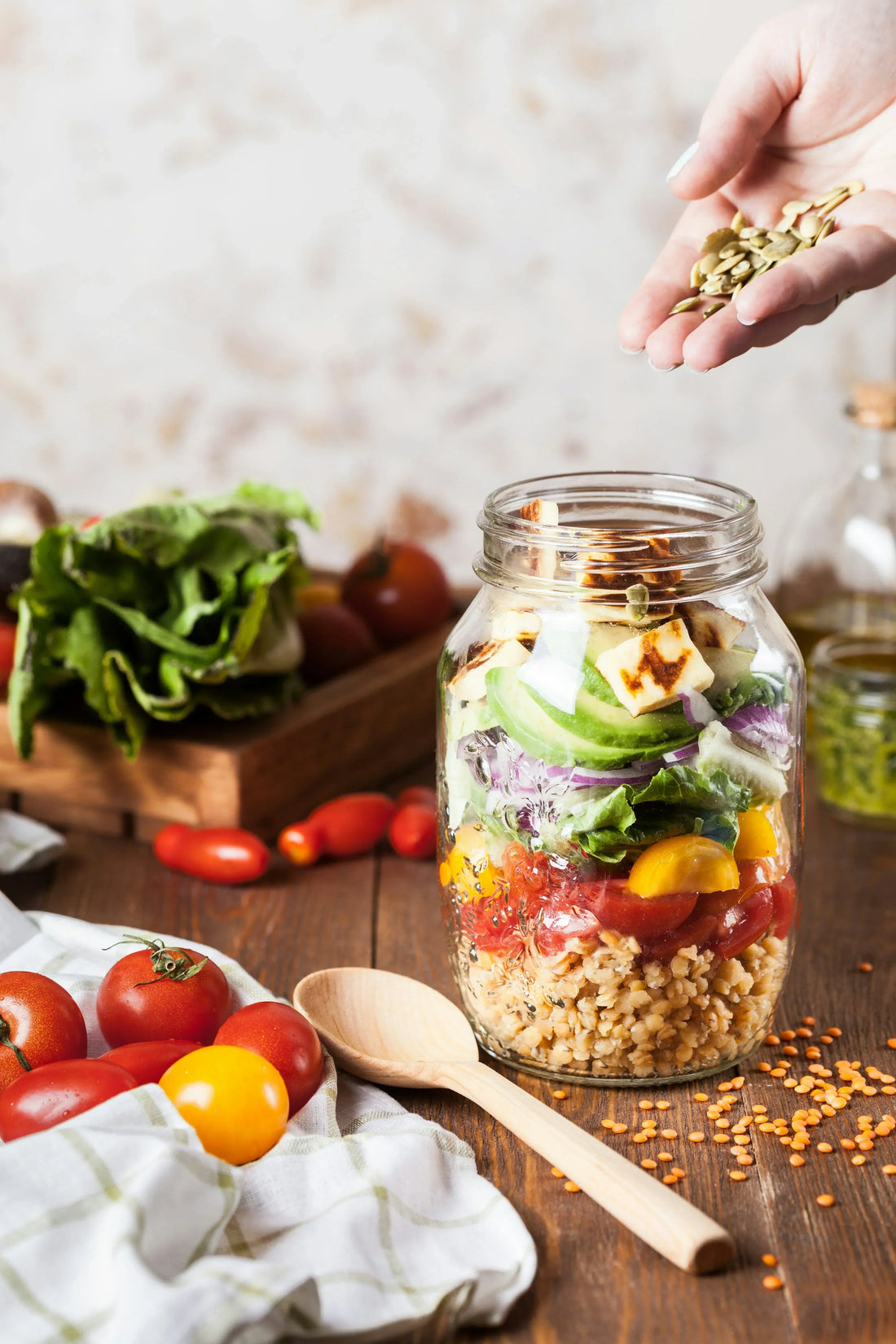
The Ultimate Guide to Sleep-Boosting Nutrition
Share
IG: @dt.tamannajain
A good night's sleep isn't just about bedtime routines—it starts with what you eat and drink throughout the day. From nutrient-rich foods to calming herbal teas, here’s how to optimise your diet for restful sleep.
1. Foods & Beverages for Better Sleep
Incorporate sleep-supporting nutrients into your diet:
Nutrient-Rich Foods
- Tryptophan: Turkey, fish, eggs, beans, lentils
- Magnesium: Dark leafy greens, nuts, seeds
- Potassium: Bananas, sweet potatoes, avocados
- Calcium: Dairy, leafy greens, fortified plant-based milk
- Complex Carbohydrates: Whole grains, fruits, vegetables
Sleep-Enhancing Beverages
- Warm milk
- Herbal teas like chamomile, lavender, and valerian root
2. Dietary Changes for Better Sleep
Simple adjustments can make a big difference in sleep quality:
✔ Eat a balanced diet rich in whole foods
✔ Avoid heavy meals before bedtime
✔ Incorporate sleep-promoting nutrients like melatonin, serotonin, and GABA
✔ Stay hydrated throughout the day
✔ Limit caffeine, sugar, and processed foods
3. Foods to Avoid Before Bed
Steer clear of these sleep disruptors:
🚫 Heavy, rich, or spicy foods
🚫 Caffeine and nicotine
🚫 Sugary foods and drinks
🚫 Processed meats and foods high in sodium
🚫 Tyramine-rich foods like aged cheese, wine, and fermented meats
4. Timing Matters: Eating Before Bed
Finish eating at least 2-3 hours before bedtime to:
✅ Support proper digestion
✅ Prevent discomfort and acid reflux
✅ Improve sleep quality
5. Essential Nutrients & Vitamins for Sleep
Key vitamins and minerals that promote restful sleep:
💤 Melatonin: Regulates sleep-wake cycles
💤 Serotonin: Helps regulate mood and sleep
💤 Magnesium: Relaxes muscles and supports deep sleep
💤 Potassium: Helps regulate sleep patterns
💤 Vitamin B6: Essential for melatonin production
💤 Vitamin D: Maintains sleep quality
6. Best Herbal Teas for Sleep
A warm cup of herbal tea can enhance relaxation before bed:
🍵 Chamomile Tea – Soothes the mind and body
🍵 Lavender Tea – Promotes deep relaxation
🍵 Valerian Root Tea – Acts as a natural sedative
🍵 Tart Cherry Tea – Rich in melatonin for better sleep
7. The Impact of Sugar & Caffeine on Sleep
Excess sugar and caffeine can interfere with sleep by:
⚡ Increasing energy and alertness
⚡ Causing blood sugar fluctuations
⚡ Disrupting melatonin production
8. Foods That Support Sleep Hormones
Eating the right foods can help balance sleep-related hormones:
🥚 Tryptophan-rich foods – Boost serotonin and melatonin production
🐟 Omega-3 fatty acids – Support brain health and relaxation
🥬 Magnesium-rich foods – Help muscles and nerves relax
9. Hydration & Sleep
Proper hydration throughout the day supports:
💧 Body temperature regulation
💧 Fluid balance and kidney function
💧 Improved sleep quality
10. Smart Bedtime Snacks for Better Sleep
Light snacks before bed can aid relaxation:
🥛 Warm milk or herbal tea
🍌 Banana with almond butter
🥣 Oatmeal with fruit
🥜 A handful of almonds or walnuts
11. The Downsides of Late-Night Eating
Eating too late can negatively affect sleep by:
⚠ Raising blood sugar levels
⚠ Stimulating digestion when your body should be resting
⚠ Disrupting gut health and causing bloating
⚠ Lowering overall sleep quality
12. Intermittent Fasting & Sleep
Intermittent fasting affects sleep differently for everyone. While some find it improves sleep quality, others may experience disruptions depending on their eating window and overall diet.
13. Gut Health & Sleep Connection
A healthy gut microbiome plays a key role in sleep:
✔ Regulates inflammation
✔ Produces sleep-promoting hormones
✔ Supports the gut-brain axis for better relaxation
14. Balancing Nutrition to Avoid Nighttime Hunger
To prevent waking up hungry at night:
🍽 Eat regular, well-balanced meals
🥑 Include protein, healthy fats, and complex carbs
💧 Stay hydrated throughout the day
🚫 Avoid heavy meals close to bedtime
